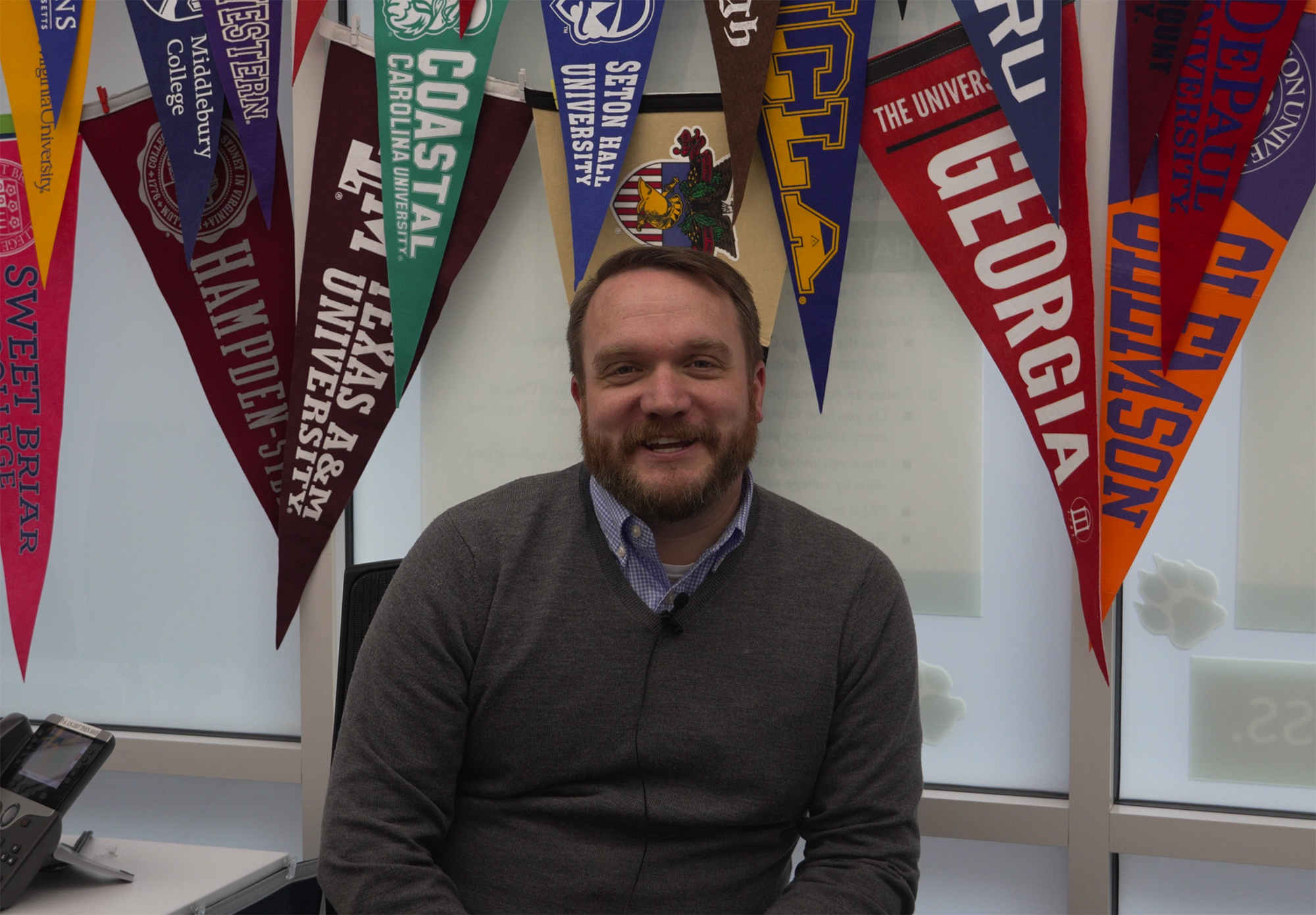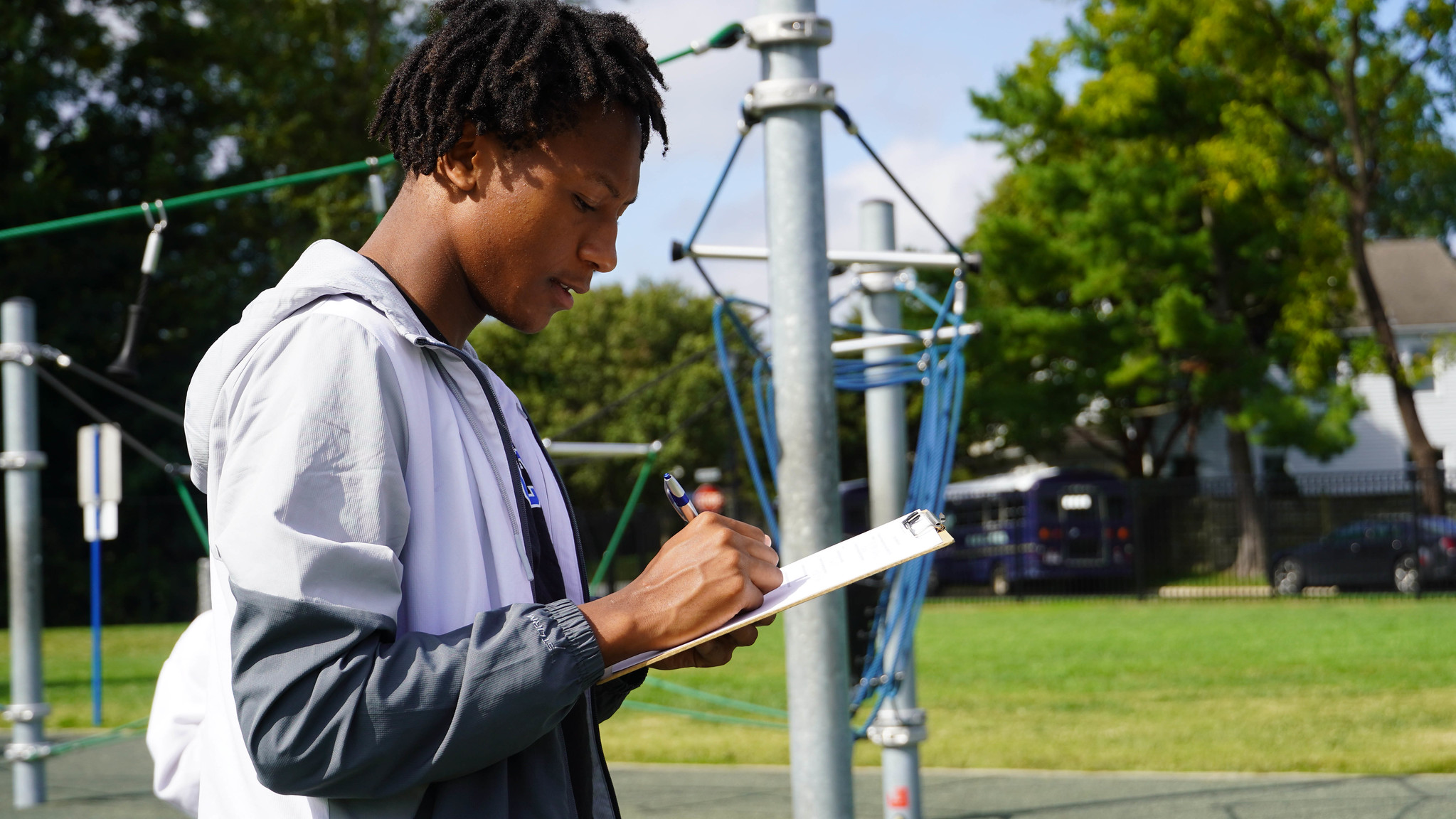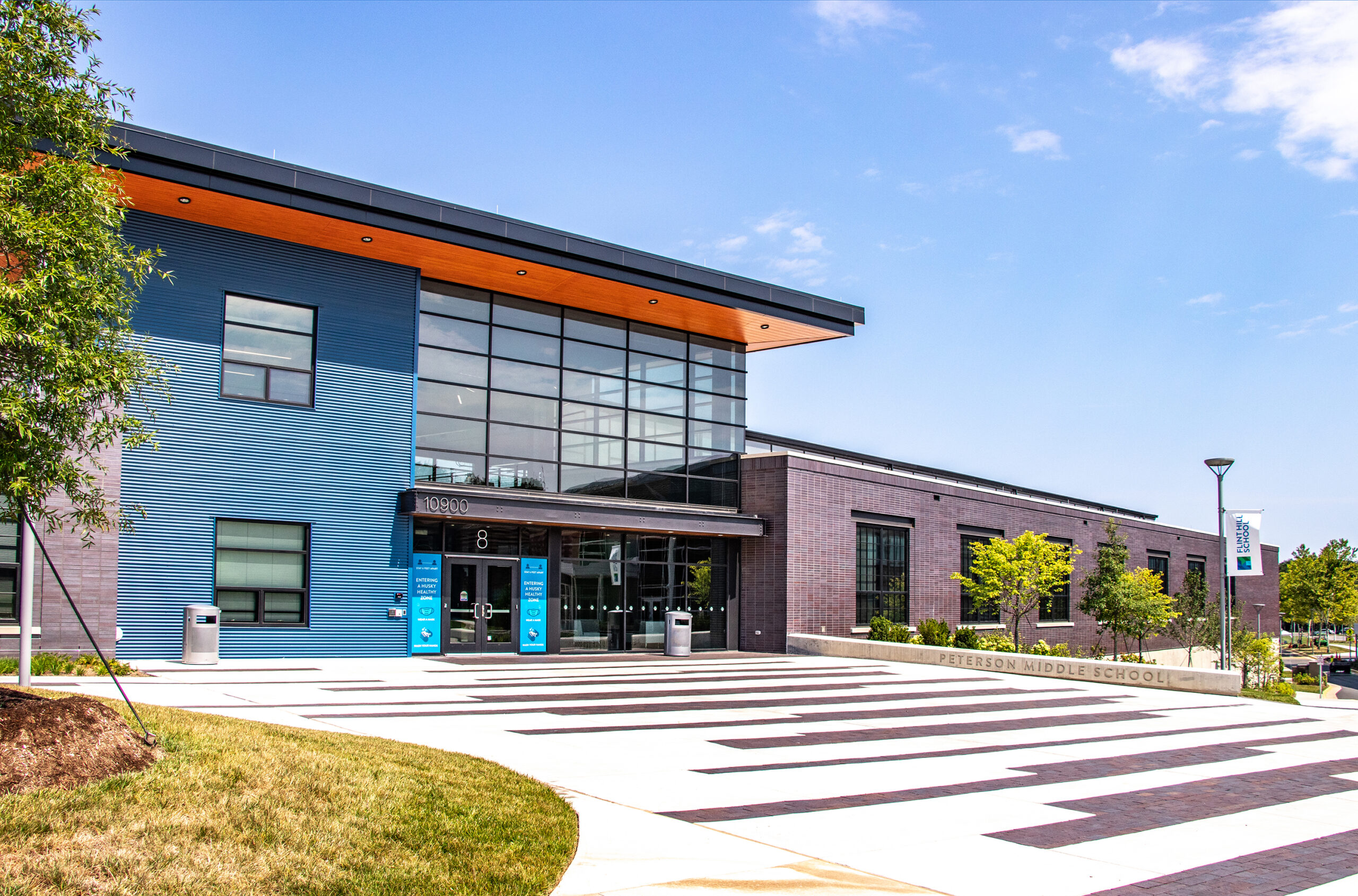LEARN MORE ABOUT FLINT HILL
HUSKY HIGHLIGHTS

October 11, 2023
Written by Flint Hill Admission
Achieving School-Life Balance: 8 Questions to Ask in Your School Search
You want your child to succeed at school, but at the same time, you don’t want them to be constantly stressed or to burn out. How do you tell if a potential middle or high school will be challenging enough academically while also prioritizing student health and wellness?
Some parents may not be asking the right questions to start with, says Andrew Kane, associate director of college counseling and freshman class dean at Flint Hill.
“Many questions are more about outcomes, like getting into the right college, and not focused on the process and preparation it takes to get there. Parents can benefit from looking at what the school’s program offers and how it will prepare the student academically and emotionally for success,” Kane says.
After talking to Flint Hill faculty and staff, we’ve put together a list of questions they think you should be asking when you’re visiting a prospective school. These eight questions will help you decide whether a school has the right mix of academic rigor and school-life balance for your child.
1. How do you guide students in their course scheduling and placement? How does this start, and how does it change as they get older?
The potential school should provide you with a program guide that will serve as a resource for the overall student experience, including the courses offered. A teacher, advisor, and other faculty should work with the student to decide a course schedule that is developmentally appropriate and allows time for social and extracurricular activities.
The process for course selection begins at Flint Hill in early March, with teachers providing recommendations to students. Students confer with their parents, faculty and college counselors before requesting their course load.
“Our conversations with students center around supporting course progression, seeking a healthy and challenging course load, and meeting requirements for a diploma,” says Debbie Ayers, assistant director and academic dean of the Upper School at Flint Hill.
“We do our best to dispel the myth that ‘more is better.’ Instead, we advise students to take the right amount of courses that build key skills for college success, continue progression in a variety of subject areas, and allow time and energy to fully experience high school,” Ayers says.
2. How does your school prepare students for success at college and in life?
There are many ways to prepare students to be capable and successful adults. Start by looking for schools that encourage students to be increasingly independent as they get older.
At Flint Hill, Upper School students have one free period built into the day. Advisors guide students on how to use that time, but it isn’t heavily supervised. Allowing students this extra time helps them develop time-management skills and gives them a break if they’re feeling overwhelmed. If they’re having a tough day, they might use the time to disconnect for a few minutes and relax. Often, students use the time to study or do homework.
Students are also encouraged to visit teachers during “office hours.” In preparing students for life after high school, Flint Hill has learned to incorporate college concepts and terminology. Students learn to manage their time and talk to teachers without their parents pushing them to do so.
The concept of “free time” during a school day can be hard for some parents to understand because that’s not what they experienced in school—but remember, both parenthood and childhood have changed and evolved over the past 10-20 years.
“We get positive and grateful feedback from our alums. They didn’t realize how well their free periods and office hours equipped them to be successful until later when they’re managing a college schedule,” Andrew Kane says.
3. What does the classroom dynamic look like between teachers and students? How do students and teachers communicate outside of class?
Teachers need to know your child and be available to your child. Whether it’s office hours, class, or some type of advisory program, students should be in constant contact with their teachers.
“Our goal is to have students be active participants in their education. Our classes are conversations between teachers and students. Rarely do you see the traditional teacher-centered education,” says Katie Knicely, Middle School history teacher and leadership coordinator.
“The line between teacher and student is very different than back when I was in school. Now there’s a focus on learning being student-directed or student-centered.”
4. What educational qualifications and credentials do your faculty and staff have? Are your faculty and staff regularly offered professional development?
Teachers should have experience in the classroom and degrees in the field that they teach. Most private schools do not require state credentials but instead offer internal professional development.
At Flint Hill, all teachers have a bachelor’s degree; the majority of faculty have advanced degrees. According to Don Paige, director of the Upper School, Flint Hill has a generous system for faculty and staff to request funds for conferences, travel, and classes. There’s also a school-wide professional development program that focuses on equity and inclusion, developmental design, instructional technology, and school safety.
5. How do your college counselors interact with students? How do students communicate with college counselors?
Here, you should look for indications that students have assigned college counselors who know them well and are available to students regularly, whether in-person or via email/virtual meeting. The counselor-to-student ratio should be considered. In some schools, especially large public ones, there are too many students for counselors to understand the student’s college needs. Often, public school counselors are helping students with course selection, mental health needs and/or behavioral issues. That could mean your child isn’t getting the specialized college counseling that schools like Flint Hill offer.
According to Andrew Kane, a good sign of a developmentally sound program is when college counselors are accessible to students. “We have an open-door policy, and any student can walk in and talk to us when they have a few minutes,” Kane says. Flint Hill assigns college counselors when students reach their junior year, but it often begins much earlier with individual assessments and student/parent programming.
6. What factors do your college counselors consider when helping a student pick potential schools?
College counselors should be meeting with a student often enough that they have a good idea of what the student is looking for and what type of school would be best for the student (even if that student doesn’t know it yet). Often, students and parents may not know the wide range of colleges and universities that serve their specific interests—but college counselors should know.
“Fit is what’s most important—not pushing the most prestigious colleges on our list. We do surveys and ask a lot of questions because sometimes students don’t know yet,” Kane says.
College counselors should show that they collaborate with teachers or other experts in the field of study the student is interested in. Kane says his team checks in with others for advice if the interest or program isn’t common.
7. How do you cultivate strong peer relationships? Are students often competing against each other, or are they working together?
Advisory groups can be beneficial to establish and develop positive peer-to-peer relationships. At Flint Hill, students have the same advisory group for years. The advisory group can become like family to them, and while there might be some element of competition, there’s much more collaboration.
“Collaboration is everything at Flint Hill. The reality of the world around us is that you’ll always have to work with people, whether you like them or not. A basic concept here is respect: You may not like someone, but you have a job to do together. Learning these types of social skills helps,” Katie Knicely says.
These social skills, along with allowing students to lead each other, harbor a more collaborative atmosphere and less of a “pressure cooker” environment.
Additional follow-up questions you can ask: What does collaboration in the classroom look like? What leadership opportunities are available to students? Is there an advisory program, and if so, how long do students spend in that program?
8. How do you measure individual progress and achievement?
While most schools have similar grading structures, students should be well aware of what’s expected of them and have access to their grades at any point in the school year. Open communication among teachers, parents and students in Middle School, with a transition to less parent involvement in Upper School, is a great way to help build students’ independence. Flint Hill and many other schools have an open gradebook online that students and parents can view at any time, and parents are formally updated four times a year at the end of each quarter. But what’s more important than grades is a student’s journey.
“Kids are coming at us with all different levels of ability and passions, and we know that. We test them on how they can succeed in a way that’s authentic to them,” Katie Knicely says. “We say to parents all the time: It’s not about the grades, it’s about the process. When you stop worrying about the numbers and focus on the process, it all comes together.”
Want your own copy? Download a PDF with just these questions (and space to write down the answers) to take on a school tour or visit.
LEARN MORE ABOUT FLINT HILL
Fill out the form to receive updates from our team.
RECOMMENDED FOR YOU
Upper School Freshman Class Dean Andrew Kane shares seven key things he wishes parents knew before their students start high school.
Choosing a preschool is a big decision! We break down the key factors to look for, the types of programs available, and how to identify...
Students learn more deeply when engaging in productive struggle versus traditionally defined ‘rigor’
Choosing a school can be a daunting and overwhelming process. Here are some critical questions to ask as you try to find the right fit.






